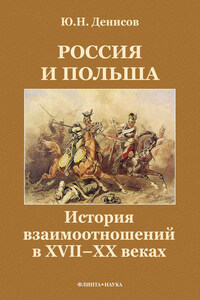John Musgrave stood before the fire in his dining-room, a copy of the Daily Telegraph in his hands. He was not reading the paper; he was looking over the top of it at his new housemaid, as she brought in his breakfast, and, with many depreciatory sniffs which proclaimed a soul above such lowly service, set it carefully down upon the snowy damask.
He approved of her. It was natural that he should approve of her, considering he had himself engaged her for three very good reasons; the first and all-sufficient reason being that he invariably engaged his own servants; the second, that she was by no means young; the third, that she was plain and respectable.
It is an interesting psychological fact that plain people are more generally respectable than handsome people. From this it is not fair to infer that virtue is necessarily hard-featured; but temptation more frequently assails the beautiful. As temptation is a thing to be avoided, this doubtless is one of Nature’s niggardly attempts at compensation. Which of us, given the choice, would not unhesitatingly pronounce for the endowment of physical attractions, and risk the possibility of an encounter with evil in the universal arena?
Virtue is a term which is frequently misapplied. To remain virtuous in circumstances which offer no temptation to be otherwise is a condition which does not justify the individual in the complacency usually indulged in where a knowledge of perfect uprightness which has never been assailed conveys a sense of superiority over one’s fellows. There can be no cause for self-esteem when there has been no battle fought and won. It was quite safe to predict that Eliza – the eminently respectable Christian name of the middle-aged Abigail – had fought no battle; it was not such a level certainty to conclude that, if she had, she of necessity would have proved victorious; for appearances, no matter how respectable and forbidding, are no guarantee of inviolable virtue. Pretty faces have not a monopoly of sentiment. Indeed, the softer qualities of the feminine heart are often hidden behind an outward austerity.
Nevertheless, Eliza was respectable. She was proud of the fact. She flaunted it in one’s face, and hurled it at one’s head – metaphorically, of course; she had not sufficient energy to hurl anything except in metaphor. She had dwelt upon it to John Musgrave, when he had first interviewed her, so particularly that she had led him to suppose it was a more rare virtue than he had hitherto imagined, and that he was indeed securing a treasure, so that he was even prepared to pay a higher wage for such an anomaly. He agreed to pay the higher wage; and, with a nine-months’ character from her last place, felt that he was to be congratulated on this respectable addition to his ménage.
Martha, his cook, who was stout, and not as active as, according to her own statement, she might have been, would have preferred some one younger and more energetic to help her in the conduct of Mr Musgrave’s bachelor establishment; and when Mr Musgrave informed her kindly that it would be pleasant for her to have so highly respectable a companion in the kitchen, Martha agreed in the dubious manner of one to whom other qualities appealed equally, if not more strongly, than extreme respectability. But Martha, though an old family servant, and a steady, reliable woman, was, as Mr Musgrave had before observed, lacking in the finer sensibilities. She conferred with Bond, the gardener, and with Mr Musgrave’s chauffeur, and the verdict that was duly pronounced was that “Lizer” was neither useful nor ornamental.
John Musgrave himself did not consider Eliza ornamental. But he was not desirous of adorning his establishment. A housemaid is not an ornament, but a useful domestic addition to the household of a gentleman; to suggest that she should be anything else would have appealed to John Musgrave as indecorous. He liked plain faces and matured years. In his way he was quite as respectable as Eliza.
“You have forgotten,” he said, lowering his paper, and moving a little to one side in order that she might obtain a view of the fireplace which his broad figure had blocked, “to put the fire-irons back in their place.”
Eliza sniffed. It was a natural infirmity, and one of which she was less conscious than those about her. It was the only drawback that her employer had observed in her so far. He disliked mannerisms. She glanced at the gleaming tiles on the hearth, at the empty dogs standing upon it, and at the fire-irons referred to, which instead of reposing on the dogs stood assertively upright on either side of the grate. Eliza had not forgotten them. She had purposely stood them erect in order to save them from getting soiled. This thoughtfulness was not due to any regard for the fire-irons, but was conceived with the object of saving herself labour. If the brass became blackened it would be necessary to polish it daily.
She went to considerable trouble to explain this to John Musgrave, who listened with grave amazement to her voluble reasoning powers. Instead of commending her prudence he replaced the irons in their rightful position in the fender.








